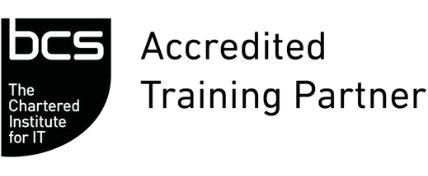Course Overview O v e r v i e w
- Course Overview
- Course Outline
- What’s Included
- What You’ll Learn
- Exam Details
BCS Practitioner Certificate in Modelling Business Processes Training Overview
Business process modelling is a vital skill for professionals involved in analysing, improving, and transforming organisational operations. This discipline focuses on identifying how work is carried out, mapping current processes, and designing future-state models that support efficiency and strategic goals. The BCS Practitioner Certificate provides a structured framework for understanding and applying modelling techniques that are widely recognised across industries.
Being formally trained in business process modelling ensures that you not only grasp the theory but also apply best practices confidently in real-world scenarios. Certification from BCS validates your expertise and enhances your professional credibility. It equips you with the tools to engage stakeholders, support change initiatives, and contribute meaningfully to business improvement projects.
At Training Deals, we deliver this course with a practical, learner-focused approach. Our expert trainers combine theoretical knowledge with hands-on insights, helping learners apply modelling techniques effectively. With flexible learning options, competitive pricing, and a commitment to quality, Training Deals is a trusted provider of BCS business process training across the UK.

BCS Practitioner Certificate in Modelling Business Processes Training Outline
Module 1: Context for Business Process Modelling
Business Systems and IT Systems
Some Definitions of ‘Process’
Processes
Why Model Business Processes?
Mapping Vs Modelling
Role of IT in Businesses
Approaches to Business Process Modelling
Hierarchy of Business Processes
Process Levels
Functional View of an Enterprise
Functional Vs Process View
Advantages of Process View
Organisation Chart View of an Enterprise
Process View
Module 2: Modelling at Enterprise Level
Enterprise View of Process Hierarchy
Map Before Model
SIPOC View of the Enterprise
Harmon Model of the Organisation
Enterprise View of Business Process SIPOC
Core Operation – Home Cinema Example
Supporting Processes
At Home Cinema – Process Map
Enterprise Level Process Model
Value Proposition
Relationship and Image Aspects
Porter’s Value Chain
Porter’s Value Chain– Manufacturing Example
Manufacturing Value Chain to Manufacturing Process Map
Porter’s Value Chain– Manufacturing Example
Value Chain for Service Enterprises
Module 3: Modelling at the Event-Response Level
Event-Response View of Process Hierarchy
Process Elements
Actors
Business Rules
Customer
Business Events
Process Elements Examples
Process Elements Example– Alternate View
Business Process Modelling Technique
Process Dependency Vs Process Flow
Why Model Business Processes?
Process Modelling Notations
BPMN
UML Activity Diagrams
Notation-Swim Lanes
Notation-Start
Notation-Tasks
What is a Task?
Identifying Tasks
Notation
Flows
Decisions
Merges
Forks and Joins
Finish
UML Notation - Reminder
Purpose of Measuring Process Performance
Measuring Processes
Timelines
Process Management
Module 4: Modelling at the Actor-Task Level
Actor-Task View of Process Hierarchy
What is a Task?
Task Analysis
Example Task Narrative for at Home Cinema
Example Task Description for Take Payment Task
Documenting Business Rules
Task Performance Measures
Documenting the Steps of a Task
Task Steps Shown as Activity Diagram
Use Case Descriptions
Header
Flows
Structured English Conventions and Constructs
DOWHILE Vs DOUNTIL
Task Steps Shown Using Structured English
Module 5: Improving Business Processes
Identifying Process Problems
Possible Process Flow Problems
Potential Process Flow Improvements
Robotic Process Automation (RPA) in Process Improvement
Unsatisfactory Performance
Challenging Business Rules
Task Analysis
Typical NVAs
Scenario Analysis
Challenging Assumptions
RPA Key Benefits
Alternative Approaches to Change
Importance of Overall View
Modelling the To-Be Processes
Gap Analysis - Identifying IT System Requirements
Gap Analysis – the COTS Approach
Module 6: Managing and Implementing Change
Gap Analysis
Taking a Holistic Approach
POPIT
How POPIT Helps?
Implementing Business Change
Pros and Cons

What’s included in this BCS Practitioner Certificate in Modelling Business Processes Training?
- Expert-led Training Sessions by Certified Instructors
- BCS Practitioner Certificate in Modelling Business Processes Training Exam
- Digital Delegate Pack
What You’ll Learn in this Course
This course takes you from understanding the fundamentals of business process modelling to applying advanced techniques that drive operational improvement. Each stage of the journey equips you with practical tools and insights to analyse, document, and enhance business processes effectively.
Learn the core principles and techniques of business process modelling
Learn to map and analyse business processes using standard methods
Learn to evaluate process performance and recommend improvements
Learn to support change through clear process documentation
Learn to collaborate with stakeholders to ensure process alignment and buy-in
Learn how to apply modelling techniques across various organisational contexts

BCS Practitioner Certificate in Modelling Business Processes Exam Information
The BCS Practitioner Certificate in Modelling Business Processes is ideal for those seeking to understand and apply a range of process modelling and analysis techniques. The exam is structured as follows:
Question Type: Multiple choice
Total Questions: 40
Pass Mark: 65% (26/40)
Duration: 60 minutes
Type: Closed book

Our Upcoming Batches
Thu 11 Jun 2026 - Fri 12 Jun 2026
Duration: 2 Days
Thu 16 Jul 2026 - Fri 17 Jul 2026
Duration: 2 Days
Thu 13 Aug 2026 - Fri 14 Aug 2026
Duration: 2 Days
Thu 10 Sep 2026 - Fri 11 Sep 2026
Duration: 2 Days
Fri 10 Apr 2026 - Sat 11 Apr 2026
Duration: 2 Days Leicester
Fri 10 Apr 2026 - Sat 11 Apr 2026
Duration: 2 Days Lincoln
Fri 10 Apr 2026 - Sat 11 Apr 2026
Duration: 2 Days Northampton
Thu 23 Apr 2026 - Fri 24 Apr 2026
Duration: 2 Days Nottingham
Request More Information

Corporate Training
Elevate your workforce with expert-led corporate training that enhances skills, boosts productivity, and aligns teams with your business goals.

Individuals Training
Unlock personal growth and sharpen professional skills with tailored training designed to build your confidence and career success.
Your Path to Professional Recognition
Our path is designed to guide you through each stage with clarity, support and practical learning, helping you achieve your goals with confidence.

Step Forward with Globally Recognised Certification
A recognised certification is more than a credential. It’s proof of your commitment to professional excellence, providing you with the credibility, confidence, and global reach to advance your career in exciting new directions.
Globally Certified Professionals Over Time
Career Growth
81%Certified professionals reported receiving a promotion after earning their certification.
Global Opportunities
89%Certified professionals experienced access to new career opportunities, including leadership roles and global positions.
Not able to find what you are looking for
Our experts will guide you to the right course from thousands worldwide: tailored to your goals.
Frequently Asked Questions
The Modelling Business Processes course introduces the three levels of the process modelling hierarchy and provides practical methods for analysing and documenting processes at the enterprise, event-response, and actor-task levels.
This course is ideal for business analysts, process designers, change managers, and anyone involved in improving organisational efficiency through process modelling.
There are no formal prerequisites. However, a basic understanding of business operations or some experience in business analysis is recommended.
You’ll learn how to identify, map, and analyse business processes using industry-standard techniques. The course also covers evaluating process performance and supporting change initiatives through effective documentation.
Yes, the BCS Practitioner Certificate in Modelling Business Processes exam is included as part of the training package.
What Our Customers Say About Us
 Matthew Sullivan
HR Business Partner
Matthew Sullivan
HR Business Partner
Our HR team registered for the Change Management Foundation & Practitioner Training Course, and it couldn’t have been more valuable. The team gained practical frameworks to guide employees smoothly through transitions with confidence.
 Olivia Barrett
Operations Manager
Olivia Barrett
Operations Manager
Our operations staff completed the Lean Six Sigma Green Belt Training Course, and it has been transformative. We can now identify inefficiencies quickly, and the tools we learned are already improving performance across the team.
 Benjamin Foster
Product Manager
Benjamin Foster
Product Manager
Our product team took part in the Agile Project Management Foundation & Practitioner (AgilePM®) Training Course, and the difference is remarkable. We’re now more adaptive, collaborative, and efficient in managing change.
 Lucy Harper
IT Support Lead
Lucy Harper
IT Support Lead
Our IT support unit attended the ITIL® 4 Foundation Training Course, and the results have been impressive. Processes are smoother, collaboration has improved, and the team finally speaks a common language of service management.
 Edward Clarke
Programme Manager
Edward Clarke
Programme Manager
We joined the PMP® Certification Training Course as a leadership group, and it was outstanding. The trainer made every concept practical, and the exam preparation resources helped the whole team feel ready to tackle complex projects.
 Amelia Rhodes
Project Officer
Amelia Rhodes
Project Officer
Our project office completed the PRINCE2® Foundation & Practitioner Training Course, and it has brought real clarity to how we manage projects. The trainer’s examples were excellent, and the team now follows a structured approach with confidence.

























